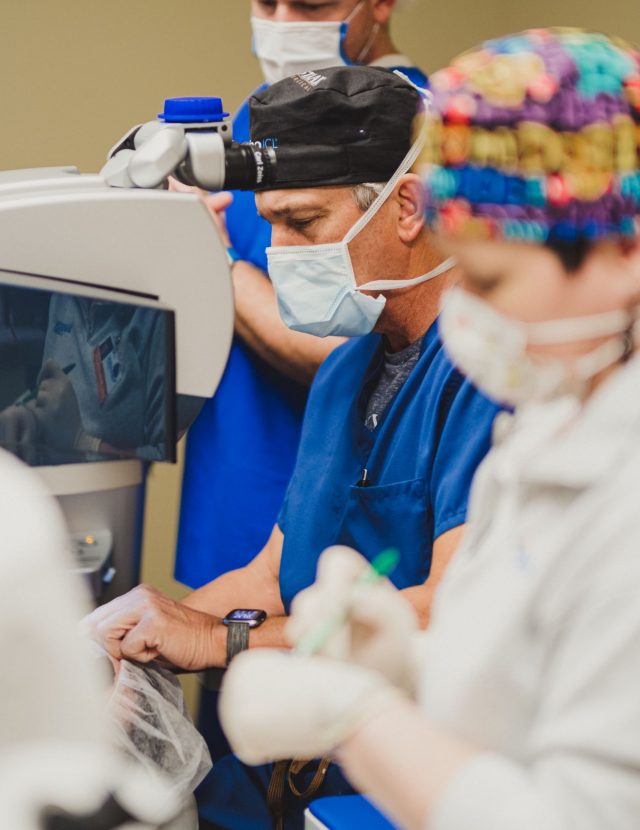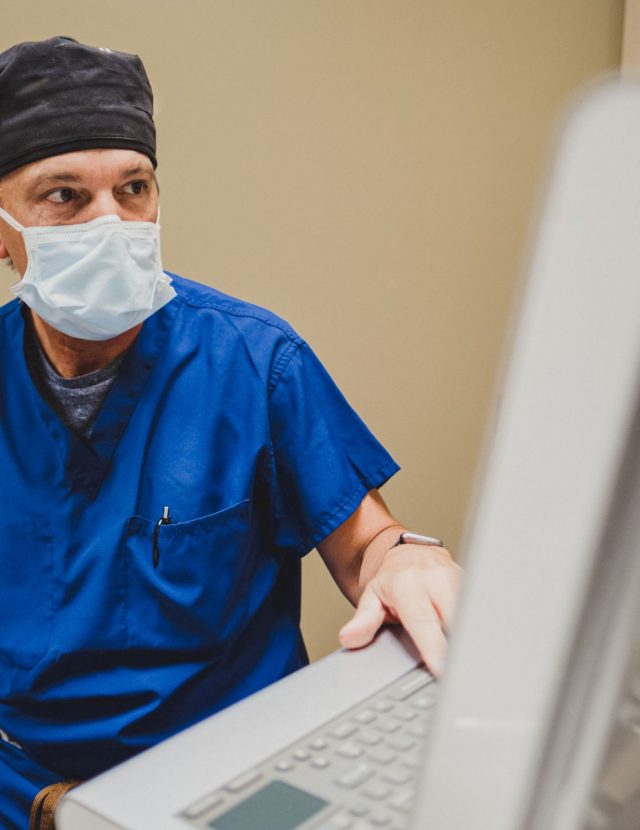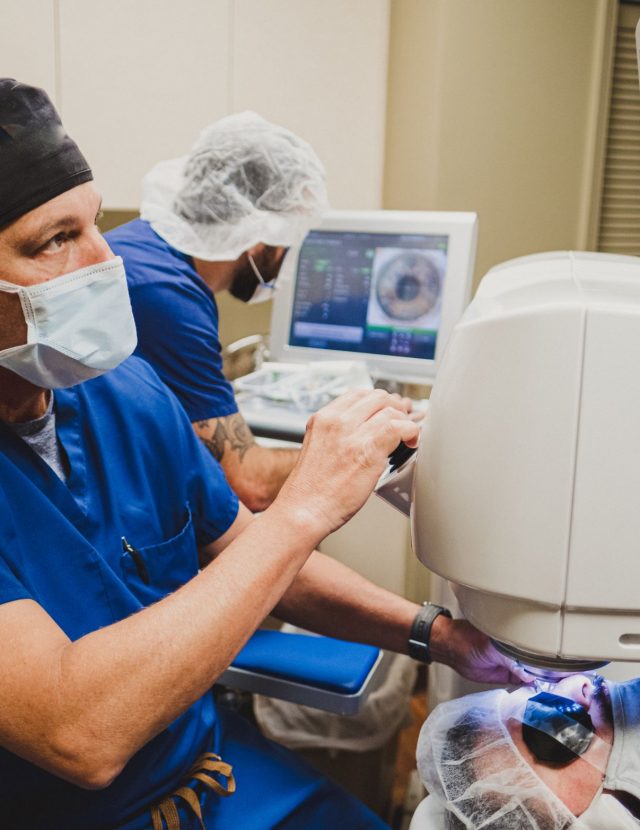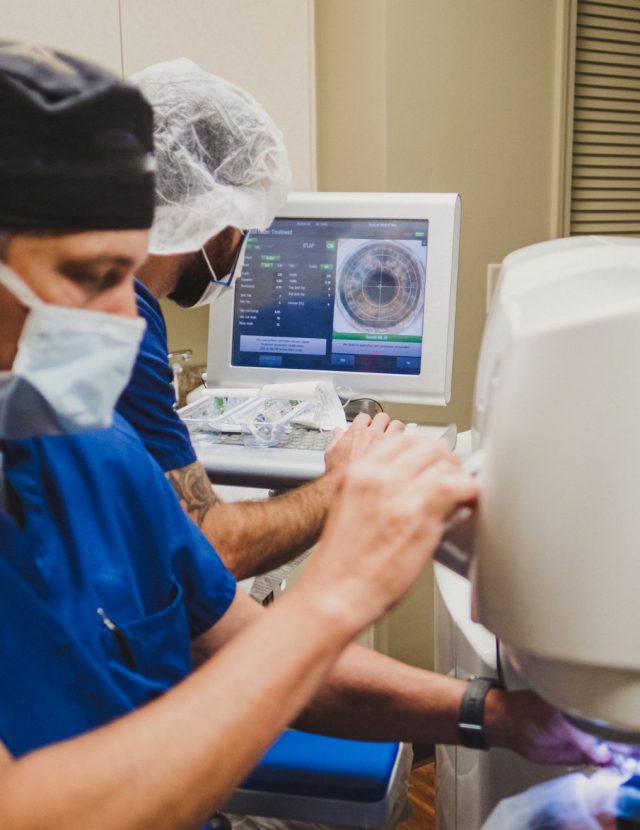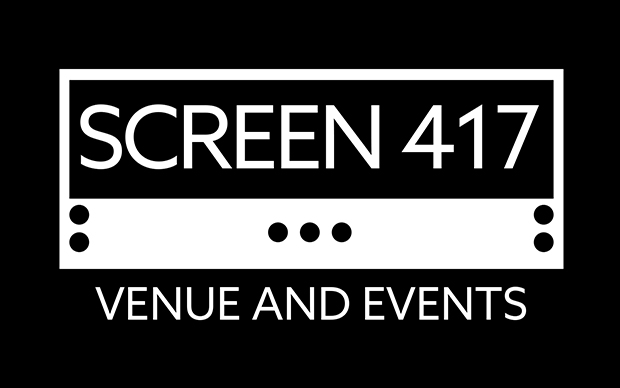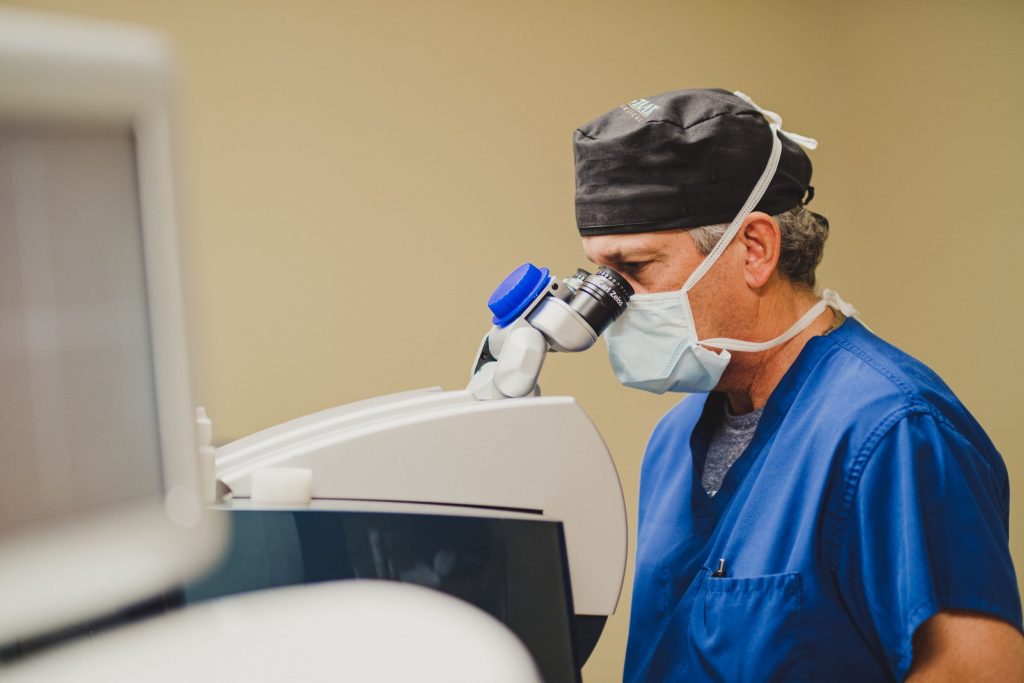
Photos Andy Calvert and Cameron Flaisch
The Eye Center
Imagine starting your day without the hassle of glasses and contacts; waking up and being able to see your coffee. With over 21 years of experience at Harbin Clinic, Ophthalmologist Dr. Paul Harton speaks about technological innovation in the field, why to consider permanent vision correction surgery, and his commitment to delivering comprehensive patient care.
Most people have heard of LASIK vision correction surgery, but did you know there are many other options for vision correction? Advanced technology and innovation at the Eye Center make Harbin Clinic the only facility in north Georgia to offer PRK, ICL, RLE, as well as LASIK surgeries to help patients see their very best. “As the technology leader in the area, we are able to provide our patients with options. Our expertise gives patients amazing results, however it’s our empathetic approach that matters most,” says Dr. Harton.

What is PRK?
Photorefractive Keratectomy laser eye surgery is a type of laser corrective surgery that reshapes the cornea. What makes this different from LASIK is how the cornea is prepared. During a PRK procedure, a thin layer of the epithelium is removed to expose the cornea to be reshaped by the laser. Afterward, a contact lens is placed over the eye and acts as a bandage while the epithelial heals. PRK is commonly recommended for patients who lack corneal thickness and are not good candidates for LASIK.
What is ICL?
Implantable Collamer Lens is a safe, effective way to permanently correct a patient’s vision. The procedure takes about fifteen minutes and involves placing a collamer lens between a person’s iris and natural lens without damaging the corneal tissue. “This procedure is a Godsend. We have treated hundreds of patients who were not eligible for LASIK. Here at the Harbin Clinic Eye Center we are able to discuss the risks, benefits and alternatives to all our patients,” explains Dr. Harton. The collamer lens is the best optic material on the market. The implant is used to treat myopia (nearsightedness) and astigmatism. It is a great option for patients with thin corneas or chronic dry eye. The lenses have a potentially lower risk of side effects and may offer better long-term vision correction. For many, ICL is preferable because it is removable.
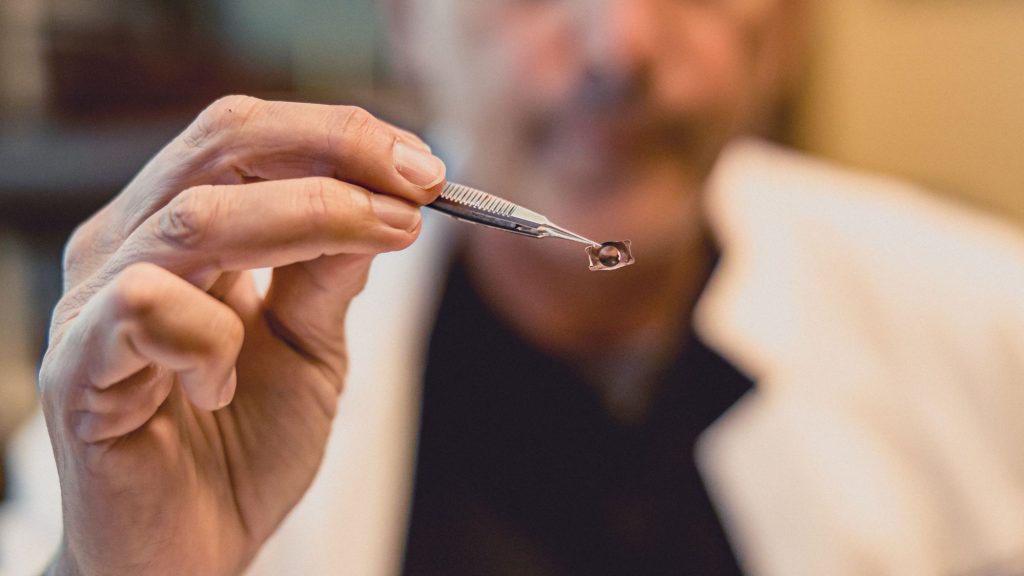
What is RLE?
Refractive lens exchange is a procedure wherein your eye’s natural lens is replaced with an artificial intraocular lens. This simple procedure is an excellent option for older patients who struggle with their distance vision without glasses. “The beauty of RLE is that it is a viable option for vision correction for just about anyone. It takes about 15-20 minutes to make a big improvement in a person’s life,” says Dr. Harton.
Is corrective surgery right for you?
There is no need to drive to Atlanta or Chattanooga to learn about your vision options. “Here at our practice, we consult with our patients the risks and benefits of all our treatments including LASIK. Patients who currently are wearing correction lenses for distance, come here and know that they have options, at a competitive price,” explains Dr. Harton. “ICL and RLE are good products that help people. Just like LASIK, they have proven lasting results, with no long-term maintenance required. In some cases, a combination of treatments can be done. For example, patients who have ICL or RLE surgery may be candidates to have subsequent LASIK or PRK treatment to fine tune their results.”
Comprehensive Care
What sets the Harbin Clinic Eye Center apart is their commitment to patient care. Dr. Harton explains, “For example, patients referred to us from family practice or internal medicine for routine examinations related to diabetes or rheumatologic disease will find the best staff eager to help our mutual patients. The Harbin Clinic Eye Center works hard to provide comprehensive care, and outstanding results.”
For more information, visit HarbinClinic.com/eye-care

